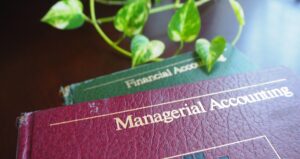Can the renovation costs before starting the real estate leasing be necessary expenses for the year?
During my participation in free consultations for general taxpayers hosted by the Certified Public Tax Accountants Association, I am frequently asked a common question.
To newly rent an old house or condominium to a third party, they undergo renovation work such as:
・Reupholstering of “tatami” or mats, flooring, “fusuma” or wallpaper,
・Renewal of plumbing equipment such as washing machine space or water heater,
・Repainting the outer wall that has deteriorated over time.
Then, they wonder:
"How should I handle these costs in tax returns?" or
"I heard they can be all tax-deductible from revenue because they are 'repairs'. Am I correct?"
These renovation projects are costly.
・Will it be a necessary expense (after this, I’ll call it “expense”)? Or not?
・Even if it is an expense, can the total amount be tax-deductible in a year? Or not?
The after-tax cash balance in the year will change significantly depending on the answer to the above questions.
The answer is No.
Recording all amounts as “expenses” in one year is impossible.
Under Japanese income tax law and regulations, the amount of renovation work before leasing the real estate does not fall under "repair expenses", even if the work content is "repair" from a general perspective.
Then, how do you handle it?
As a fixed or depreciable asset, you will expense it over the years according to the useful life period.
目次(Table of contents)
What are the “repair costs” under tax law and regulations?
The tax regulation stipulates the principle of “repair costs” as follows.
"Costs required for repairs of 'business use' buildings, machines, equipment, fixtures and fixtures are included in expenses. In addition, the cost of repairs by the lessee of a building rented for 'business use' can be included in expenses if the lessee cannot claim the cost to the lessor. (Income Tax Law Enforcement Order 181)”
Here, please turn your attention to the word "business use".
In the case of the real estate leasing business, "property in the state of 'business use' refers to the property after the completion of renovation work and the start of recruiting tenants."
In other words, in principle, the tax law permits ‘repair costs’ as fully tax-deductible in the year of expenditure, such as repairs to restore original condition or regular periodical maintenance, after the start of tenant recruitment.
Renovation costs before starting the business will be included in the house’s acquisition cost - allocated as expenses over the years through depreciation-
So, how should you handle the renovation costs before tenant recruitment?
Having tenants in the "old house" that you originally lived in or a newly purchased "second-handed house" is challenging.
To change this situation, or to expect long-term "profit, you order renovation work.
These renovation costs are an indispensable investment for an “old house” or “second-hand vacant house” to generate the intended profit.
So, the law stipulates these costs as part of acquisition costs of "fixed assets", like the construction cost of the original “old house” or the purchase cost of the “second-handed house”.
And the costs of renovations are systematically allocated to the periods of their service life through depreciation.
After determining the useful service life for each renovation item, you need to perform the specific depreciation calculation by the straight-line method.
(I omit this explanation in this blog.)
Lastly, one more note.
Not all renovation work is subject to the depreciation calculation above.
For example, an expenditure to dispose of various goods in the "old house" is a household expense. You have to exclude it.
At the end
With the lift-off of restrictions on COVID-19, some people are considering starting a new leasing business after renovating their property or have started.
However, under the law and regulations, even if the content of renovations seems “repair", it does not fall under "repair costs", which can be fully tax-deductible for the year.
The impact on the after-tax cash balance could be significant, so please be careful.

